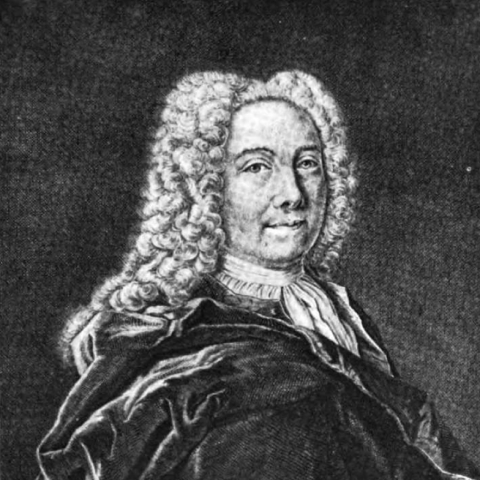Emanuel Swedenborg's IQ: 187

Emanuel Swedenborg's vast intellectual contributions spanned various realms including theology, philosophy, and science. His IQ is estimated to be around 187.
Born into a prominent Lutheran family, Emanuel Swedenborg grew up surrounded by theological discourse and an atmosphere of intellectual rigor. His father, a fiery clergyman, believed in the presence of angels and the divine as everyday companions. Emanuel inherited this fervor, though he spent much of his early life charting a course that seemed destined for the sciences rather than the heavens. Yet, Swedenborg would ultimately become one of history's most enigmatic figures, weaving together visions of angels with the precision of a scientist.
From mechanical inventions to metaphysical revelations, Swedenborg’s journey stands as a testament to an intellect that sought not merely to understand the physical universe but to transcend it.
The prodigy of reason
Emanuel Swedenborg was a man of the Enlightenment, a period of dazzling discovery and intellectual ambition. After graduating from the University of Uppsala in 1709, Swedenborg embarked on a tour of Europe, immersing himself in the scientific advancements of the time. In England, he studied with minds influenced by Isaac Newton; in France, he met leading astronomers and mathematicians. Swedenborg's brilliance spanned the breadth of natural sciences, from geology to astronomy.By the age of 26, he had invented devices ahead of their time: a prototype submarine, a flying machine, and a steam engine. He introduced Sweden to calculus, helped improve its mining industry, and theorized about the structure of atoms and the formation of planets long before such ideas gained traction. His intellectual reach earned him a reputation as "The Aristotle of Sweden." Yet, beneath his scientific rigor, Swedenborg was haunted by deeper questions. What connected the physical universe to the spiritual? Could reason and revelation coexist? The seeds of these questions began to sprout as he delved further into human anatomy, attempting to locate the soul in the brain's cellular structures.
Visions that reshaped his life
At 55, Swedenborg’s life took a dramatic turn. Following the death of his father and years of existential turmoil, he experienced vivid dreams and visions, culminating in what he described as a direct encounter with Christ. This marked the start of his "spiritual awakening." Swedenborg claimed that his spiritual senses had been opened, enabling him to traverse heaven and hell and converse with angels and spirits.For the next 27 years, Swedenborg dedicated himself to interpreting the Bible through the lens of his spiritual experiences. His seminal work, Heaven and Hell, offered a detailed vision of the afterlife. In his view, heaven was not a distant paradise but a continuation of virtuous earthly work, filled with learning and empathy. Hell, by contrast, was not fiery torment but the consequence of selfish desires and disconnection from love.
Swedenborg’s theological writings outlined his doctrine of "correspondence," the idea that everything in the physical world reflects spiritual realities. Trees, rivers, and even human emotions had divine counterparts. His claim to receive divine knowledge placed him at odds with traditional Christianity, but his ideas resonated with thinkers such as William Blake and Ralph Waldo Emerson, who admired the poetic grandeur of his visions.
Genius or divine madness?
Swedenborg's extraordinary claims – of conversing with angels, witnessing heavenly cities, and describing otherworldly landscapes – prompted a mix of reverence and skepticism. Some called him the "Leonardo da Vinci of the North," marveling at the sheer scope of his genius. Others questioned his sanity. Renowned philosopher Immanuel Kant dismissed Swedenborg’s visions as delusions yet admitted to being fascinated by the coherence of his ideas.Modern psychologists have speculated on Swedenborg’s mental state. Could his visions have been the result of a late-onset neurological condition or a deeply introspective mind shaped by years of solitude and study? Or was he, as his followers believed, a prophet for a new age of spiritual understanding?
Despite the controversies, Swedenborg remained productive until his death in 1772. His theological works laid the foundation for the New Church, a movement dedicated to his vision of a compassionate, rational spirituality.
A legacy of boundless inquiry
Swedenborg’s life defied categorization. A brilliant scientist and inventor, he was also a mystic who claimed to peer beyond the veil of the material world. His intellectual contributions to fields as varied as metallurgy, anatomy, and cosmology stand alongside his theological insights as evidence of an unparalleled mind.To this day, Swedenborg’s writings inspire curiosity and debate. His vision of a universe woven from both reason and revelation challenges the boundaries of faith and science. In a world increasingly driven by data, his belief in the interconnectedness of all things serves as a reminder that wonder and inquiry are not mutually exclusive.
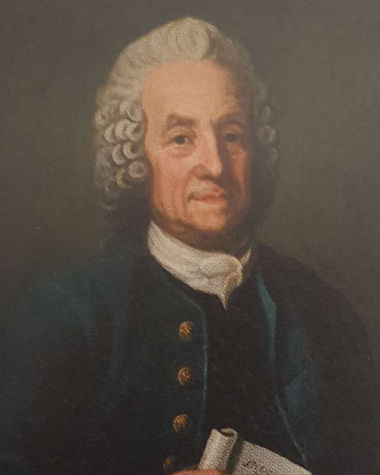

Average Confidence Level
HighWe derived Emanuel Swedenborg's IQ from Business Insider. We have included the IQ scores from four other sources for reference. We calculated the source score using the midpoint of the given range.
 Confidence Level: Low
Confidence Level: Low
 Confidence Level: High
Confidence Level: High
 Confidence Level: Low
Confidence Level: Low
 Confidence Level: Low
Confidence Level: Low
 Confidence Level: Low
Confidence Level: Low
5 Reasons Why Emanuel Swedenborg Was Considered a Genius
- High IQ Estimate: Emanuel Swedenborg's IQ is estimated to be around 187. This is among the highest echelons of intellectual capacity historically recognized.
- Multidisciplinary Contributions: Swedenborg excelled in numerous fields, including theology, philosophy, and various sciences. This indicates a highly versatile and profound intellect.
- Spiritual Revelations: His detailed narratives of spiritual experiences and the afterlife in his voluminous writings reflect an unparalleled depth of spiritual insight.
- Scientific Innovations: Swedenborg made pioneering contributions to anatomical studies. He also laid early groundwork in fields like neurology and psychology through his insightful observations. He published several sketches of inventions during his lifetime, including those for an early aircraft.
- Philosophical Theories: He proposed complex theories on the soul, life after death, and the interconnectedness of the universe, demonstrating his capacity for abstract and critical thinking.
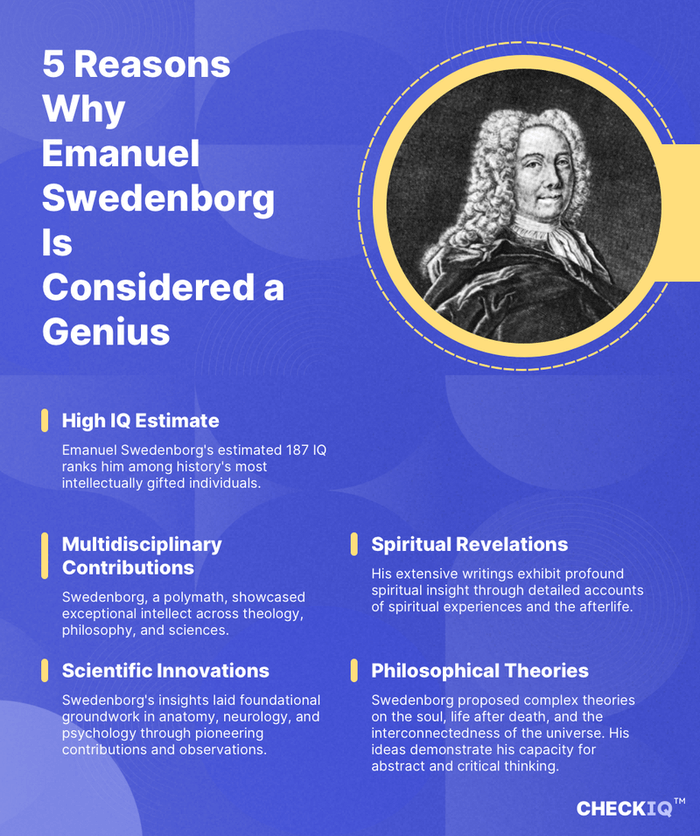
Try our accurate online IQ Test. Get your IQ score immediately.
Start IQ Test
How Does Emanuel Swedenborg's IQ Compare to the Rest of the World?
With an ultra-genius IQ level of 187, Emanuel Swedenborg was probably one of the most intelligent people to ever live. To put this into perspective, a 160 IQ places you in the top 0.003% of the population in terms of cognitive abilities. With a 187 IQ, you would be smarter than almost anyone else in history. This level of intelligence would grant you access to any high-IQ society in the world, including the most exclusive ones, like Mega and Giga.
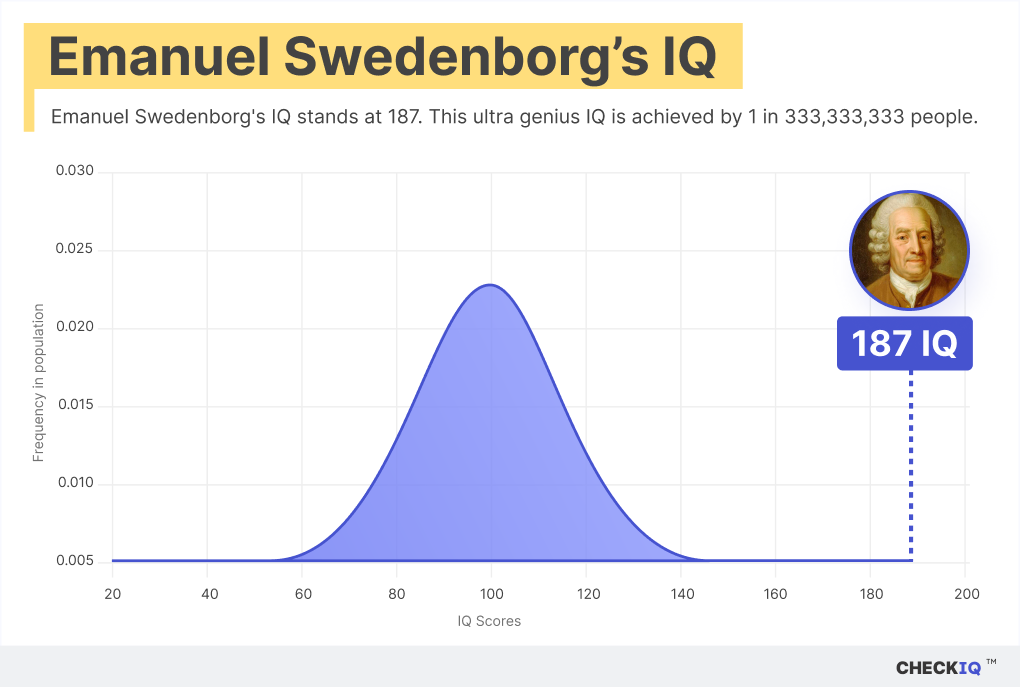
Was Emanuel Swedenborg one of the smartest minds to ever live?
Emanuel Swedenborg, with an estimated IQ of 187, ranks among the greatest minds in history. His intellect, vast and diverse, naturally draws comparisons to other extraordinary figures who have shaped human thought.
Swedenborg’s mental prowess aligns closely with Goethe, whose IQ is estimated at 205. A literary and scientific titan, he explored a broad spectrum of disciplines, much like Swedenborg. Both men sought to connect the material and spiritual worlds through their work, challenging their contemporaries to think in new ways. Goethe’s exploration of light and color through science resonates with Swedenborg’s blending of scientific inquiry and divine visions.
Equally impressive is William Shakespeare, whose unmatched literary genius is reflected in an estimated IQ of 210. Shakespeare’s works captured the depths of human emotion and the intricacies of society, setting a standard for creative brilliance. While Shakespeare painted humanity through plays and poetry, Swedenborg mapped the heavens and hells, offering vivid portraits of the spiritual realm. Both men displayed an enduring ability to inspire curiosity and reflection.
Swedenborg’s intellectual curiosity also brings to mind Voltaire, whose IQ is estimated at 186. Like Swedenborg, Voltaire questioned the world around him, challenging societal norms and offering bold, new ideas. Voltaire’s wit and philosophical insights into human rights and freedom mirror Swedenborg’s exploration of spiritual freedom and the nature of the soul.
Further along the spectrum of brilliance is Mark Twain, with an IQ of 170. Twain’s wit and sharp observations revolutionized American literature, offering humor and social commentary that remain relevant today. His ability to see the world in unique ways and share those insights with his audience is a quality Swedenborg shared, albeit with a focus on metaphysical truths rather than social satire.
Lastly, Charles Dickens, with an IQ of 145, used his creativity to illuminate the struggles of Victorian society. Dickens captured the essence of human experience through vivid characters and compelling narratives. Though their approaches were different, Dickens and Swedenborg shared a deep concern for the human condition and sought to improve how people understood their world.
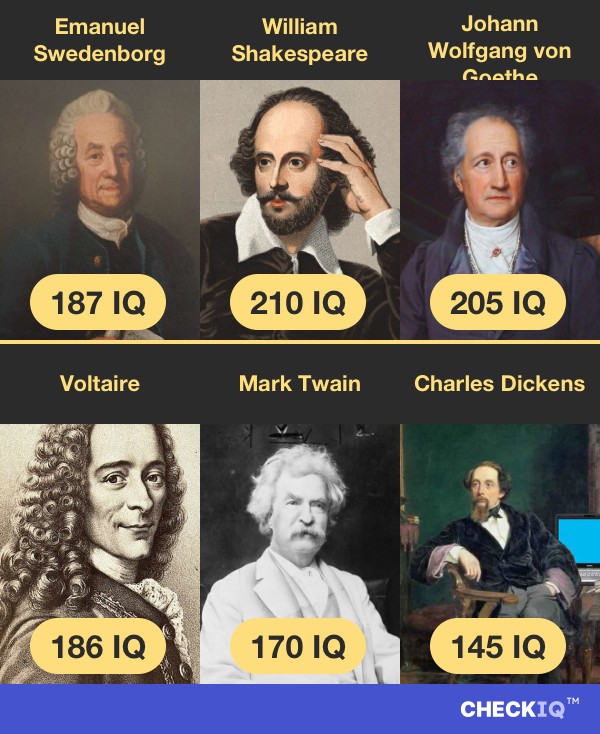
Do you see Emanuel Swedenborg's IQ as an asset or just a number? Join the dialogue in the comments section below!

Discover the IQ of Other Famous People
-
 Magnus Carlsen190 IQ
Magnus Carlsen190 IQ -
 Nolan Gould150 IQ
Nolan Gould150 IQ -
 Lil Wayne102 IQ
Lil Wayne102 IQ -
 Michael Jackson159 IQ
Michael Jackson159 IQ -
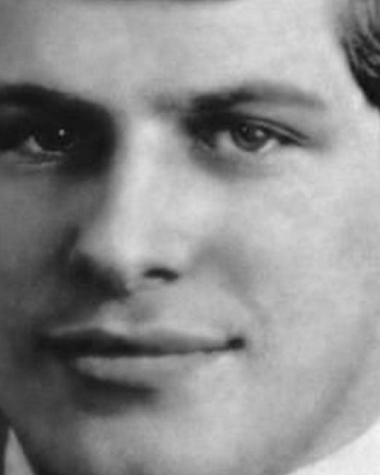 William James Sidis275 IQ
William James Sidis275 IQ -
 Will Smith114 IQ
Will Smith114 IQ

